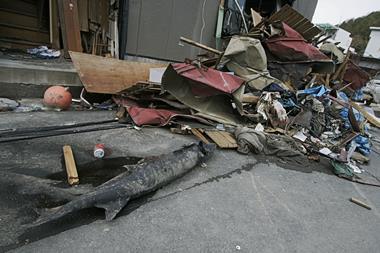Companies in highly-regulated sectors are demanding new risk transfer solutions for the disruption caused by regulatory intervention
Violation to medical standards, gaps in documentation and other compliance breaches can cost companies in highly-regulated industries dearly. Particularly when they find themselves out of action.
Hundreds of thousands of dollars – if not millions – are at stake when regulatory authorities uncover violations that require a shutdown and remediation. Beyond the cost of recalling a product, substantial losses can be incurred when facilities are shut down for a period of time.
Regulatory risk is a reality of the modern age - with stricter regimes and tougher supervisors an antidote to an increasingly complex business environment - thinks Thomas Keist, head of marketing, Innovative Risk Solutions, Swiss Re Corporate Solutions. He points to new medical device regulation, due to come into force across Europe in 2020, which promises to increase oversight and enforcement for breaches in medical device quality standards.
“Globalisation is happening at an exponential pace especially with respect to trade and manufacturing,” says Keist. “That’s why the efforts on the regulatory side have also increased dramatically, in line with the increase globalisation of the value chain of companies. There is a wish to get these things under more control.”
Companies in highly-regulated industry sectors are inevitably more exposed to significant business interruption losses as a result of regulatory intervention. McNeil, a division of Johnson and Johnson, was forced to shut down one of its main US OTC manufacturing plants after a scathing FDA [Food and Drug Administration] inspection report in 2010. The firm, which also recalled many of its consumer products, did not resume commercial production until 2015.
In another example, pharmaceutical giant Pfizer suspended production at its sterile injectables plant in India several times, most recently in July 2018. The firm received a warning letter from the FDA after European regulators had also noted issues with the facility and pulled its manufacturing certificate. Collaboration between supervisors in different countries to achieve outcomes is becoming more of a feature in today’s stringent regulatory environment.
Companies that have a high dependency on a small number of products are particularly vulnerable to such actions, according to Keist. “If you’re working according to good manufacturing practices and something of an accidental nature happens, there is a human error for instance, the regulatory body often intervenes. Then you face the risk of having your manufacturing suspended, your licence withdrawn or your factory being forced to shut down. This will inevitably have your business interrupted.”
“Having to shut down your manufacturing for just a short time can have a huge impact on your supply for the entire year,” he continues. “Companies with a strong investor base are demanding a return on investment and if these companies need to deliver and cannot, because something happened to their production, that can get them into trouble.”
From a risk transfer perspective, specialist products tailored to BI resulting from regulatory intervention remain largely bespoke. In response to growing demand, Swiss Re Corporate Solutions has developed a life science non-damage business interruption (NDBI) product available, explains Keist. “The number of enquiries that come across our desks with respect to non-damage business interruption (NDBI) has probably quadrupled or more over the past five years. Today, seven out of ten enquiries we receive are NDBI-related.”




















No comments yet